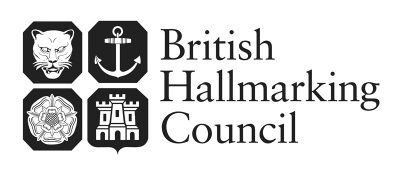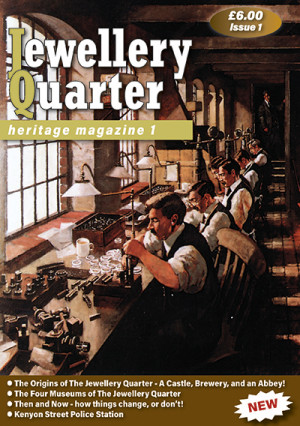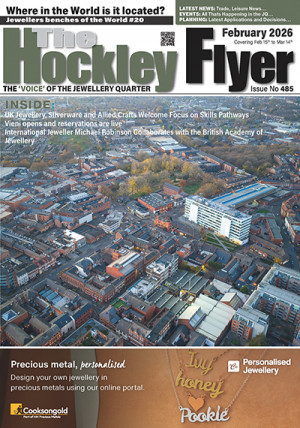 What can UK jewellery importers and exporters do?
What can UK jewellery importers and exporters do?
By BRITISH HALLMARKING COUNCIL Established by Parliament to oversee hallmarking in the UK
Note: At the time of providing this information, the final relationship between the UK and the EU is not yet known. For this reason, this paper aims to set out best practice around the possible scenarios that may or may not transpire. This information relates to hallmarks only. Separate advice should be sought on customs arrangements.
The current situation
There are currently two separate ways in which hallmarks applied in one country can be recognised as being equivalent in another country:
- European Court of Justice (ECJ) ruling. The ECJ has ruled that EU member states must recognise each other’s marks subject to providing an equivalent level of protection and being intelligible to consumers. The effect of this ECJ ruling is that most EU countries, with a requirement for compulsory hallmarking, will accept UK hallmarks as being equivalent to their own. The UK also accepts many EU member state hallmarks.
- The Common Control Mark (CCM) applied by signatories to the Vienna Convention on the Control of Precious Metal Articles. Often referred to as simply a convention mark, the CCM can only be applied by a signatory country within their national boundary. In other words, the Convention is an agreement between Governments who have ratified the terms of the treaty. The Convention has prescribed technical rules on testing and marking. Whenever a signatory country applies the CCM it means they have followed these common technical rules. It also means that all other signatory countries will accept the articles directly onto their market.
What might change after Brexit?
- No Deal Exit – In a scenario where the UK left the EU without any deal then all the UK’s obligations to recognise EU marks would cease and similarly all obligations by our EU neighbours to recognise UK hallmarks would also cease. In this case we anticipate that any product already on the market before the date of Brexit would be legal as it entered the market pre-Brexit and would already be in free circulation.
Any new stock entering the UK market would require a hallmark recognised in the UK and in the case of stock exported to other EU countries, it would require a mark recognised by those countries.
The CCM or Convention mark will continue to be recognised in the UK and it will continue to be recognised in those countries who are also members of the Convention. - Managed Deal Exit – In a scenario where the UK negotiated a managed exit from the EU with an EU customs union, it may be the case that that relationship will continue to be subject to the ECJ ruling which currently provides the basis for recognition of domestic marks. In a managed exit there are also likely to be cut offs agreed over a set period, if there are going to be changes to the current situation. Until the exact nature of any future deal is known the exact effect cannot be determined.
- Delayed Exit – In the case of an extension to the UK’s membership the current recognition to UK marks by our EU neighbours and the recognition of the EU marks currently recognised in the UK would continue.
What action can importers and exporters consider taking now?
The CCM mark applied by a UK Assay Office is currently accepted in all EU member states because it is a UK hallmark. You can start applying a CCM mark to your goods now with no impact on your current import or export requirements.
Post Brexit, it will continue to be accepted by those EU member States who are also signatories to the Convention.
Which countries are covered by the CCM?
The Current list of signatory Member States of the Convention is as follows:
Austria, Croatia, Cyprus, Czech Republic, Denmark, Finland, Hungary, Ireland, Israel, Latvia, Lithuania, Netherlands, Norway, Poland, Portugal, Slovak Republic, Slovenia, Sweden, Switzerland, and the UK.
The following countries have undergone assessment, have been invited to join but are in the process of ratifying the treaty: Serbia and Italy.
The CCM mark can be applied to new articles along with UK Assay Office marks or as an addition to articles already bearing UK hallmarks.
If you are importing from any of the above countries, we recommend that post Brexit you request a convention mark on your goods, or you submit them to a UK Assay Office for hallmarking before placing them on the market.
If you are exporting to any of the above countries, we recommend that you apply a convention mark to your goods, post Brexit.
It is also important to remember that the UK exemption weights of 7.78grams for silver, 1gram for gold/palladium and 0.5grams for platinum, may not apply in other countries. For example, in the Republic of Ireland there are no exemption weights. This means that any stock destined for southern Ireland must bear a CCM. Exemption weights for the other signatory states are available from your Assay Office on request.
What about the EU countries that are not members of the Convention?
Belgium, Luxemburg, and Germany do not require any hallmark as a pre-market authorisation.
In France, a hallmark is a legal requirement. Importers must register with the Bureau de central.
In Spain, a hallmark is a legal requirement. Importers must register with an assay office in Spain.



